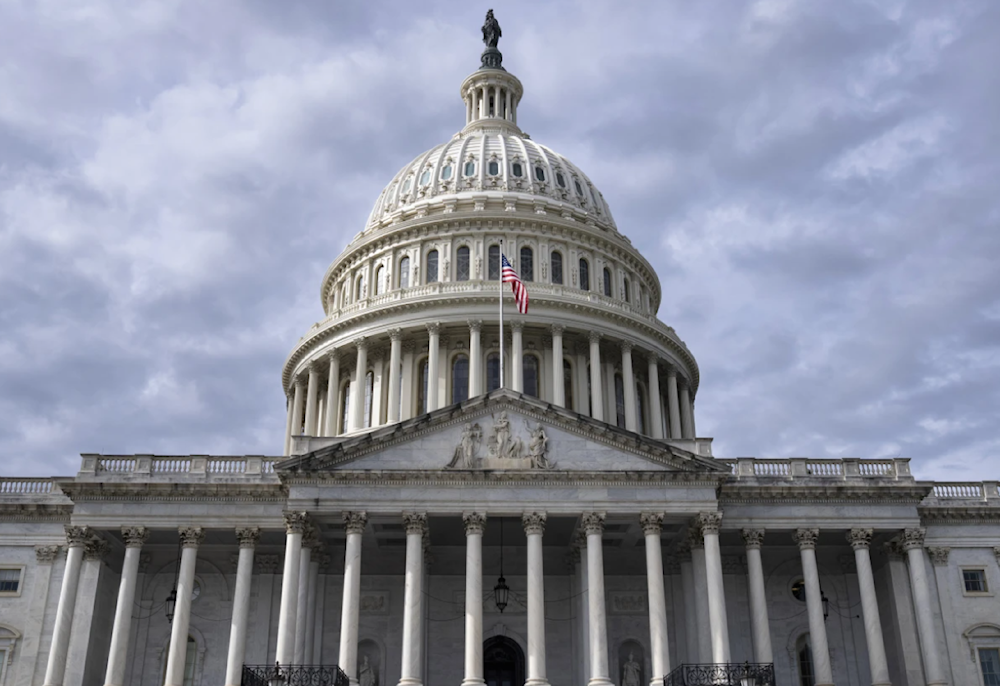Congress bill H.R.9495 sparks concerns over abuse of power
The bill allows the Treasury Secretary to label organizations as "terrorist-supporting" without evidence, placing the burden of proof on the accused and giving them just 90 days to clear their name.
-

The Capitol building is seen in Washington on November 4, 2024. (AP)
Several nonprofit organizations and NGOs including Oxfam, Amnesty International, the Council on Foundations, Independent Sector, and the National Council of Nonprofits, have opposed Section 4 of bill H.R.9495, which is up for voting in Congress.
In a joint statement, the organizations say they oppose section 4 of the bill and its predecessor, H.R.6408.
Section 4 of the bill H.R.9495 is receiving major backlash due to concerns about potential abuse of power and threats to due process.
What is bill H.R.9495?
The disputed bill would empower the Secretary of the Treasury to designate section 501(c) charities as "terrorist supporting organizations" at his or her discretion, without having to provide any evidence or explanations with the accused NGOs.
501(c) charities include any tax-exempt organizations like news outlets, colleges and universities, and civil society groups and deprive them of tax-exempt status.
Furthermore, the bill breaches constitutional due process safeguards by shifting the burden of proof onto the accused group and giving organizations only 90 days to prove their innocence before losing their tax-exempt status.
The measure may unfairly punish charity groups that legitimately offer humanitarian aid in crisis zones, even if they have necessary authorizations from the US government, which now shields such operations under sanctions legislation.
NGOs, organizations, warn of bill's dangers
The organizations opposing the bill are calling for revisions to ensure due process protections and prevent the abuse of power by the executive branch.
A joint statement by the Council on Foundations, Independent Sector, and the National Council of Nonprofits expresses that the organizations have no issue with postponing tax deadlines for those unlawfully or wrongfully detained or held hostage abroad and support stopping bad actors from "using nonprofit organizations to fund terrorism."
However, they argue that the legislation also "includes language from H.R.6408 that creates redundancies and confusion while providing the executive branch with expansive new authority that could be abused."
The organizations contend that such accusations would do irreversible harm to their operations and image, losing access to banks and other financial institutions, as well as the confidence of contributors and the communities they serve, and those receiving help would suffer the most.
Paul O’Brien, Executive Director at Amnesty International USA, expressed that in other contexts, the legislation would be exposed as an obvious play from an "authoritarian leader’s playbook,” detailing how officials would not need reason nor evidence to designate groups.
O’Brien warned that "Members of Congress must recognize the danger posed and vote down this bill that could shrink civic space and silence civil society organizations.”
The American Civil Liberties Union also urged the House of Representatives to vote against the bill, calling it a dangerous new tool that could be used to "stifle free speech, target political opponents, and punish disfavored groups.”
Kia Hamadanchy, senior policy counsel at ACLU expressed that a core tenet of democracy is the "freedom to dissent without fear of government retribution," cautioning that Congress must block the bill before time passes
Will Trump's reign be a descent into authoritarianism?
The news is especially alarming considering how the incoming US President Donald Trump formerly vowed to deport student protesters from the US and crush pro-Palestine protests on US campuses.
Referring to the pro-Palestine movement on college campuses, Trump vowed that if he was elected, "we’re going to set that movement back 25 or 30 years."
Furthermore, Trump's recent cabinet picks have not shied away from their support of "Israel," prompting many to fear that dissent will not be tolerated.
Trump chose New York Representative Elise Stefanik to be US ambassador to the United Nations after she spearheaded efforts to silence pro-Palestine voices on college campuses under the guise of fighting for antisemitism.
Last month, Senate Majority Leader Chuck Schumer committed to advancing legislation aimed at curbing "antisemitism" on college campuses, and The New York Times reported in September that universities across the United States implemented stricter regulations on campus protests and free speech following widespread demonstrations against US support for the war on Gaza.

 4 Min Read
4 Min Read








